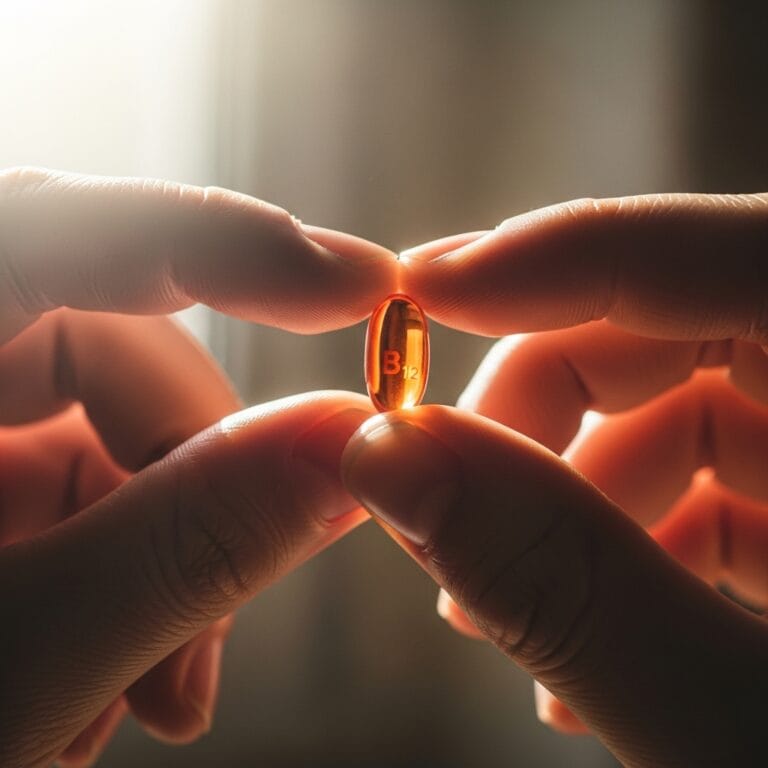FREE SHIPPING OVER $50
Should You Start Anti-Aging Supplements in Your 20s or 30s? The Truth Might Surprise You

It’s a question that often pops up as we blow out the candles on our 20th or 30th birthday: When does aging actually start, and when should we start fighting back? For decades, the conventional wisdom suggested waiting until middle age, 40 or 50, to start thinking about things like anti-aging supplements, collagen, or targeted longevity strategies. After all, your energy is still high, your skin still bounces back, and the primary concerns are usually fitness and career, not slowing down the clock.
However, modern longevity science has completely overturned this traditional timeline. The truth about aging is that the underlying cellular and molecular processes, like DNA damage and mitochondrial decline, begin far earlier than you might think. This is why anti-aging supplements are no longer seen as a last-ditch effort, but rather as a preventative measure. Experts now confirm that starting certain targeted supplements in your 20s or 30s isn’t overkill; it’s a strategic move to optimize your healthspan and protect your future vitality, and the answer might genuinely surprise you.
The Biological Reality: Why Anti-Aging Starts Earlier
The confusion over when to begin anti-aging supplements stems from a disconnect between chronological age (the number of years you’ve lived) and biological age (the true health of your cells). Experts argue that the 20s and 30s are the prime time for “pre-emptive maintenance.”
The Mitochondrial Decline
Your mitochondria are the “power plants” of your cells, generating the energy (ATP) that runs your body and brain. After your 20s, the efficiency and quantity of your mitochondria start to decline slowly.
- The Problem: This decline isn’t immediately noticeable, but it is the real reason behind the gradual drop in energy and metabolic rate that many people experience in their 40s.
- The Solution: Starting supportive supplements in your 20s or 30s helps protect and optimize these mitochondrial factories while they are still largely robust, maximizing energy output for decades to come.
The Collagen Crash
You reach peak collagen production around age 20. After that, production slows down by about 1% every year. Collagen is the main structural protein in your skin, joints, and muscle tissue.
- The Problem: Waiting until you see deep wrinkles or feel chronic joint pain (often in your 40s or 50s) means you are playing catch-up against years of accumulated loss.
- The Solution: Early supplementation is about supporting existing collagen and slowing the rate of degradation, preserving joint health and skin elasticity.
Phase One: The Essential Supplements for Your 20s (Prevention)
In your 20s, the goal is primarily prevention and protection. Your body is still working at peak capacity, but you need to guard against the damage caused by modern life (stress, poor sleep, pollution).
1. Omega-3 Fatty Acids (The Brain Defender)
These essential fats (EPA and DHA) are critical for brain structure and function. They are arguably the most important longevity supplement you can take at any age.
- Why Start Now: Your brain is still developing in your early 20s. Omega-3s reduce inflammation, support mood stability, and protect cell membranes from damage, essentially safeguarding your cognitive foundation.
2. Vitamin D3 (The Hormone Regulator)
While not strictly anti-aging, Vitamin D plays a key role in hormonal balance, immune function, and calcium absorption, all of which are essential for long-term healthspan.
- Why Start Now: Many people, regardless of age, are deficient. Maintaining optimal levels early ensures your immune system and skeletal health remain robust, preventing future issues.
3. Magnesium (The Stress Buffer)
Magnesium is involved in over 300 enzymatic reactions, including energy production and muscle relaxation. It’s often depleted by stress, caffeine, and alcohol consumption—common factors in your 20s.
- Why Start Now: Taking a highly absorbable form (like Magnesium Glycinate) supports better sleep and manages stress, indirectly supporting cellular recovery and reducing inflammation.
Phase Two: The Strategic Supplements for Your 30s (Targeted Repair)
Your 30s are the decade when you often feel the first real shifts in energy, recovery, and metabolism. This is the time to introduce targeted anti-aging compounds that focus on cellular repair and mitochondrial efficiency.
4. Coenzyme Q10 (CoQ10) or Ubiquinol (The Mitochondrial Booster)
CoQ10 is an antioxidant that plays a vital role in the mitochondrial energy production chain. While the body produces it naturally, production begins to decline in your 30s.
- Why Start Now: Supplementing with CoQ10 (or its more absorbable form, Ubiquinol) directly fuels your mitochondria, boosting energy and protecting cells from oxidative stress. This supports your metabolic rate and prevents the sluggishness often felt in this decade.
5. NMN or NR (The DNA Repair Activators)
Nicotinamide Mononucleotide (NMN) and Nicotinamide Riboside (NR) are precursors to NAD+ (Nicotinamide Adenine Dinucleotide), a coenzyme essential for DNA repair and sirtuin activity (the “longevity genes”). NAD+ levels drop sharply as we age.
- Why Start Now: While some experts suggest waiting until the 40s, starting low-dose NAD+ precursors in the 30s can help maintain higher levels, supporting the cellular repair mechanisms that are just starting to slow down. This is a foundational longevity strategy.
6. Collagen Peptides (The Structural Support)
While not a magic bullet, hydrolyzed collagen peptides provide the raw amino acid building blocks that your body needs.
- Why Start Now: Since collagen decline starts early, adding collagen supplements in your 30s provides your body with the necessary materials to offset the 1% annual loss, helping to maintain skin elasticity, gut health, and joint comfort before problems arise.
The Non-Supplement Secret: Lifestyle is the Foundation
The truth that might surprise you most is that no anti-aging supplement, no matter how advanced, can compensate for poor lifestyle choices. These supplements are amplifiers, not substitutes.
Sleep is the Ultimate Anti-Aging Pill
The most effective anti-aging activity is high-quality, restorative sleep. It is during deep sleep that your brain cleanses itself and your body releases peak pulses of natural growth hormone—the master repair signal.
- The Rule: If you are not consistently getting 7 to 9 hours of quality sleep, save your money on supplements and invest it in improving your sleep hygiene first.
Resistance Training Preserves Youth
Muscle is the currency of longevity. Strength training is the most powerful tool available to reverse aging because it directly combats sarcopenia and improves insulin sensitivity.
- The Rule: Incorporate strength training (using weights or resistance) 2 to 3 times per week. Supplements like NMN work best when paired with this physical stimulus.
Conclusion
The question of whether you should start anti-aging supplements in your 20s or 30s is definitively answered by longevity experts: Yes, starting strategically in these decades is a powerful act of preventative health. While your 20s call for foundational supplements like Omega-3s and Magnesium, your 30s mark the perfect time to introduce targeted cellular repair supplements like CoQ10 and NAD+ precursors. By protecting your mitochondria and collagen early, you establish a resilient cellular environment, ensuring that you optimize your healthspan and maintain high energy and vitality well beyond your middle years.
Related Articles
- 12 Alarming Signs You’re Dangerously Low on Magnesium—And What to Do About It
- This Tea + Vitamin Combo Could Be Your Brain’s Best Defense Against Alzheimer’s
- Warning for Women Over 50: The 1 Common Supplement That Accelerates Bone Loss, Says Geriatrician
- New Hope for Alzheimer’s? This Popular Supplement Shows Surprising Promise in Latest Study
- Think Collagen Is Just Hype? These Skin, Hair, and Joint Results Say Otherwise







